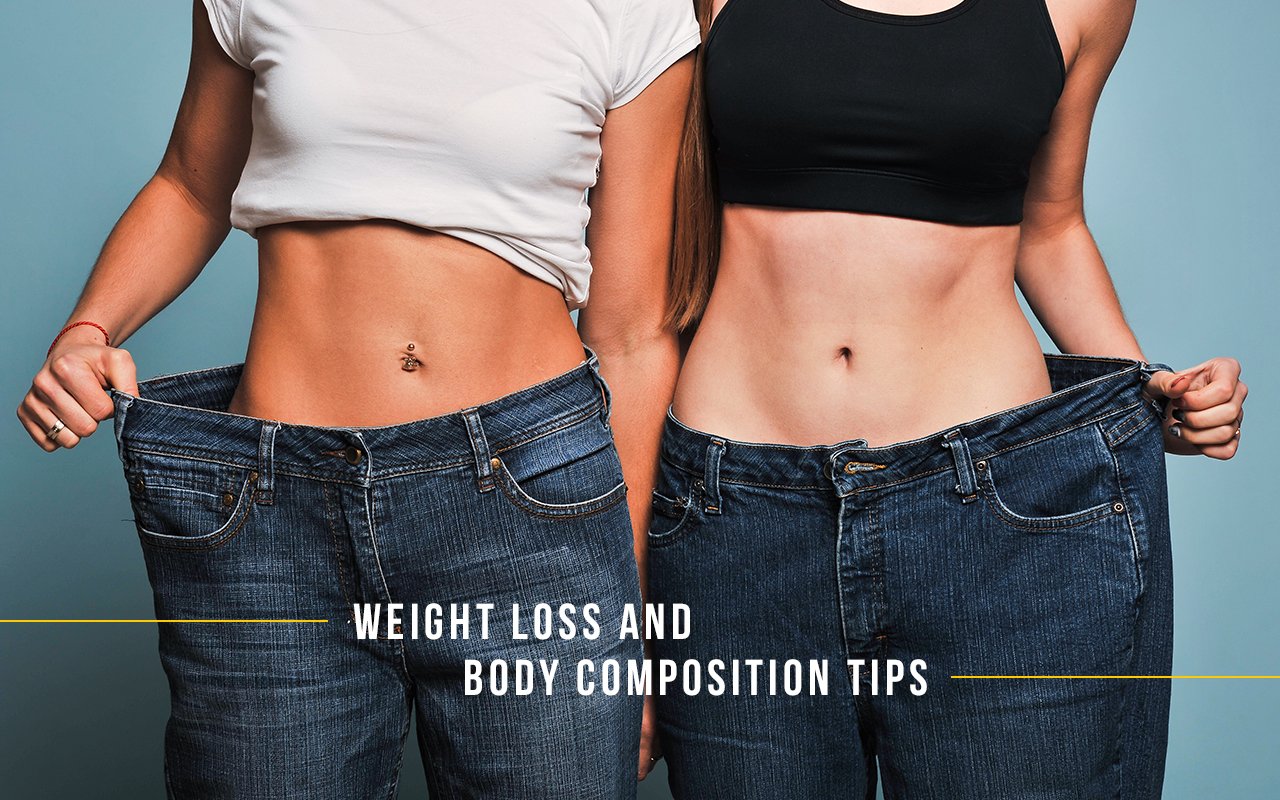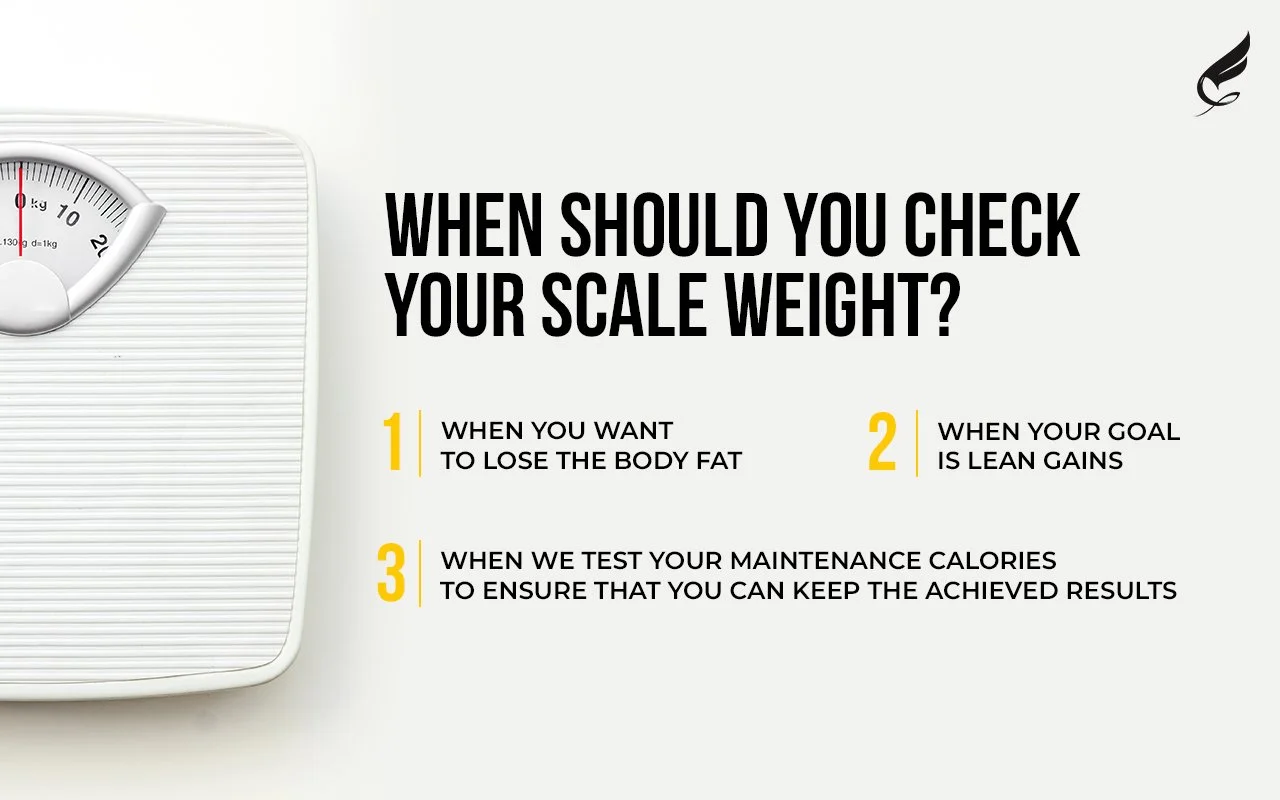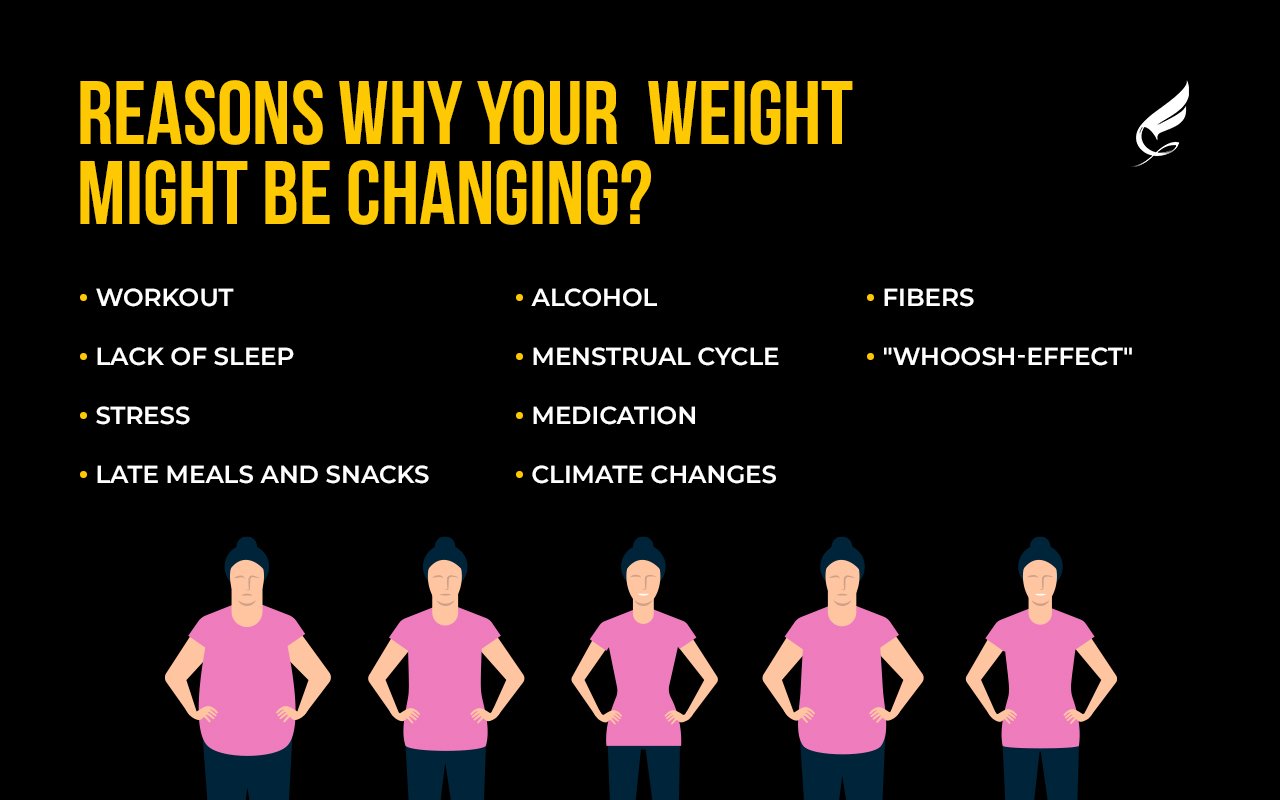Why Scale Weight Should Not Be the Only Indicator of Success During Your Weight Loss Journey!
When you're trying to lose weight, it's natural to want to see results as quickly as possible. You hop on the scale and are disappointed when you don't see the number go down. So you try harder the next day, but no progress is made. This can be incredibly discouraging, and many people give up altogether because they feel like doing something wrong. But did you know that scale weight is not always an accurate indicator of success during your weight loss journey? Body composition is a much better tool to assess progress!
Do you want to look good or just lose weight?
When people decide to improve their shape, they often have a certain number on the scale in mind or tell me that they want to be the same weight they were at their graduation party, before the wedding, before having a baby, or even when they were at school.
Some clients just imagine a random expected weight, which might not even be achievable as fast as they expect! Such an arbitrary number won’t be good for their health if it means that not achieving the target will demotivate them and put them off their plan!
Find out more about sustainable weight loss with our blog: [How to Achieve Sustainable Weight Loss].
What matters more than the scale weight?
The number on the scale doesn’t matter as much as the body composition. Whether you lose weight or gain weight should not demotivate you, especially in the initial stages of your journey, and I will explain why! When losing weight, the healthy approach should be to lose extra fat stored in fat depots, especially around the waist, because exceeding fat surrounds the inner organs and affects our health. High fat percentage in females and males has been linked to multiple risk factors, including heart disease, diabetes, early onset death, and many others!
Research suggests that reducing weight should be your main priority during your fitness journey! The key to reducing your body fat percentage is a caloric deficit. The less fat we have, the leaner we look, so it’s better to aim for a higher fat-free muscle mass and less fat mass. The optimal way to grow muscle mass is resistance training with progressive overload.
Therefore, if the ultimate goal is to improve body composition and look better in front of the mirror, the number of kilograms shown on the scale should not be your priority. However, does that mean we should get rid of the scale?
Practical application of the scale in your weight loss journey!
Measuring your weight on the scale is a practical tool for tracking your progress. However, understanding how to use it correctly is crucial. I’ve seen people measure their weight a few times a day and get upset that “the weight is growing.”
When should you check your scale weight?
I recommend checking your weight in the morning after you’ve completed your morning routine but before having breakfast and getting dressed. Place the scale on a flat surface, measure your weight, and write down the number. If you can weigh yourself each morning, you will have a clear picture of your progress calculated as the average number per week. If a daily checkup becomes annoying, measure yourself at least four times weekly.
When do we need to use the scale?
Since it’s one of the tools helping us to see the progress, we use the scale in the following cases:
When you want to lose body fat
When your goal is lean gains
When we test your maintenance calories to ensure that you can keep the achieved results.
I’m sure many of you have tried to measure yourself and already know that the scale never shows the same number.
Have you ever noticed that weight loss is never a linear process?
If you try to track your progress on the scale regularly, you know that some days, instead of dropping weight, it goes up. Well, we also know how annoying and frustrating it can be. That’s why you must read the following sentences!
A caloric deficit is the main rule for healthy weight and fat loss. It means you eat fewer calories than you spend by decreasing your daily calories intake and increasing your physical activity through movement. I recommend resistance training (2-3 hours per week in the gym won’t kill your working routine but will benefit your health). If that is inconvenient for you, just walk, move, and play active games with your friends or kids.
If you stick to the regime, you will surely see results. But if you have just started your journey, weight loss can sometimes be a rollercoaster.
Are you looking for science-based nutrition coaching or generic meal plans? If so, click here to learn more!
Some of the reasons why scale weight might fluctuate daily!
The main reason for “gaining weight” overnight is water retention caused by:
Workout
During the workout, you get microdamage in your muscle tissue. It requires recovery, and your body will store extra water to restore your muscle tissue faster.
Lack of sleep
You can quickly check it yourself. If you wake up early on the weekend, measure your weight on the scale, go to sleep for another 2-3 hours, and then stand on the scale again, you’ll see it with your own eyes.
Stress
Cortisol hormone is produced when we stress out because of work, family issues, studies, and deadlines, causing water retention.
Late meals and snacks
You had a late dinner before going to sleep, which doesn’t mean it’s stored as fat if you still follow your meal plan or customized program. It instead means that yesterday’s food still didn’t digest properly. And if you had pizza, sushi, or something salty for dinner, add here more water retained since 1 gr of carbs holds 4 gr of water. While carbs are not bad at all, keep in mind the fact itself, and no, it doesn’t mean you should exclude carbs.
Alcohol
It works both ways – water retention and dehydration individually. It gets metabolized slowly, processes in the liver, and can act as a diuretic. Water retention can happen if drinking sweet cocktails or an exceeding amount of alcohol in general.
Menstrual Cycle
If you are a female, you probably notice that you get swollen when your period is about to start, which is a normal process, and here we can’t do anything with it. To track the progress, you can compare your weight to the same day of your menstrual cycle in the previous month. If you follow everything correctly, you will see that your weight is less than on the same day last month but might be a bit higher than last week. No panic!
Medication
Some medicines and endocrine diseases can provoke water retention, but we won’t argue with doctors’ prescriptions. Keep in mind that by being on the deficit and following it for a decent amount of time, you are losing fat, no matter how much water your body is holding. It will go anyway.
Climate changes
It depends on how your body reacts to climate and weather changes. When it’s hot, we drink more, sweat more, and sometimes swell up more.
Fibers
You started eating more fiber which is highly beneficial for your gut and overall health. The fiber doesn’t digest fast, which helps us not to feel hungry longer and is, along with protein, one of the primary nutrients giving us satiety and other health benefits. So don’t get upset if you see a higher number on the scale for a few days until your body adapts to an average amount of fiber to be eaten daily.
"Whoosh-Effect"
If you are in a caloric deficit for some time (usually two months or longer), you might notice a so-called “whoosh-effect” in your fat tissue. Unfortunately, we cannot reduce the number of fat cells in our bodies. It’s unique for each of us, and many factors contribute to our body composition. The good news is that when we lose weight, the fat cells shrink. That’s why we get leaner, our clothes sit loose, and our outlook changes. Before fat cells shrink, they first get filled with water which stays for a few days or weeks. And then you sometimes see a sudden drop up to 1- 1.5 kg.
These are the main factors causing water retention, provided that your overall health is ok. To stay focused, I’d advise you to use other methods of tracking your progress along with the scale.
Other measurements you should use with the scale weight to better asses your progress!
BMI - Body Mass Index
Anthropometric measurements with a measuring scale: neck, waist, and hips
Before and after images
Learn more about the BMI with our blog: [BMI Calculator: Understanding Your Body Mass Index].
Common questions and answers
Can I have fruit juice and still reach my fitness goals?
Yes, you can have fruit juice and still reach your fitness goals. However, it is essential to remember that fruit juice is not a healthy food. It is high in sugar and calories and does not contain the fiber of whole fruits. Therefore, it is best to consume fruit juice in moderation. You should focus on eating whole fruits and vegetables rich in fiber instead of drinking fruit juice to lose weight.
What is considered a healthy weight?
A healthy weight is appropriate for your height and body type. You can use a combination of a BMI calculator and waist-to-hip measurement to determine if you are at a healthy weight. However, it is essential to remember that BMI does not always give an accurate picture of someone's health. If you carry a lot of muscle, your BMI may be high even though you are very fit. That's why the Waist to Hip measurement is also essential. You should speak with a doctor or nutrition coach if you have any concerns about your weight. They will be able to assess your health and give you specific advice on how to reach your ideal weight. Weight loss should always be made healthily, so do not try fad diets or other unhealthy methods.
I experience weight gain every single time I stop dieting! What Can I do to Prevent this from happening?
After you complete a dieting phase, it is normal to regain some of the lost weight; however, regaining it all back or even gaining more than you lost means you have not mastered how to maintain your weight loss. Weight gain can often be prevented by slowly easing back into eating regular foods and not overeating. This process is called a reverse diet and can help your body transition back to a non-dieting state without triggering hunger or weight gain. If you need help structuring a plan to keep you from losing weight, you can check out our nutrition coaching page or our blog about our generic dieting templates!
I keep losing motivation during my weight loss journey. How can I improve on this?
If you have intrinsic motivation, staying motivated during your weight loss journey will be easy. Intrinsic motivation comes from within yourself: the desire to do something because you enjoy it or because it is important to you. Weight loss can be difficult, and sometimes you don't feel like continuing on. It is during these times that your intrinsic motivation will be most important. If you don't have a strong reason for losing weight, giving up will be very easy when things get tough. Therefore, thinking about:
Why do you want to lose weight before you begin your journey?
What are your goals?
What are your reasons for wanting to improve your health?
How will you feel when you reach your goals?
How to make the process simplified and easy to follow.
Even adding external rewards can help you continue when your intrinsic motivation is low!
Fortius Dubai comprehensive fitness & wellness blog:
To find out more about our services, check out:
#StayStrong #BeFortius







